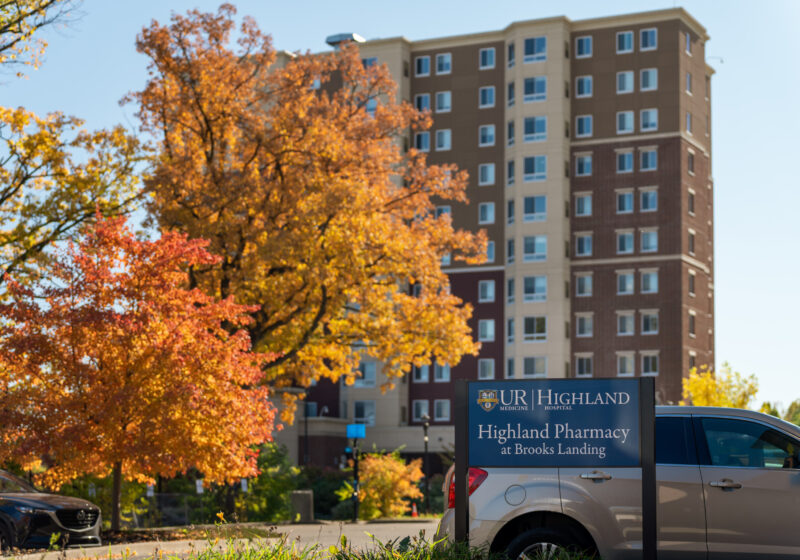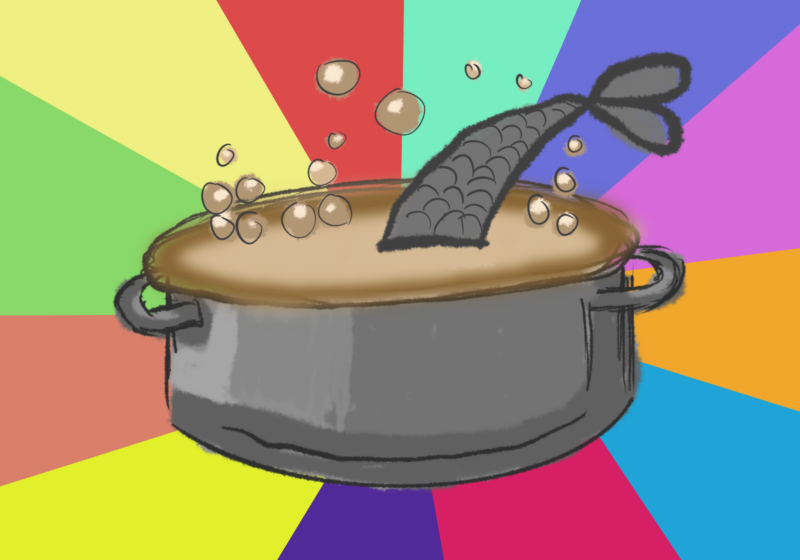A staple new year’s activity for my family is dumpling-making, which, I’d argue, may be the only truly all-inclusive family exercise that exists in this world.
The clumsy-fingered and (self-proclaimed) unartistic take up the grunt work of rolling out (ideally) circular doughs, and the kids engage in the annual dumpling-making contest — which calls for a heaping cup of boasting and arguing over whose dough creases are more aesthetically uniform. An elected person mans the stove and boils batch after batch of dumplings, some of which, defeated by the churning water, split along their seams and populate the starchy water with pink and green specks (lovingly consumed all the same). In my mind, there is also my mother, who has perfected the craft of effortlessly conjuring up the most delicious filling I’ve ever tasted — fundamentally irreplicable, as she’s never made a recipe nor remembers what she puts in it.
It’s been years since I’ve last experienced the uniquely carefree comfort and connection I felt during moments like these. For one, my family has changed in irreparable ways, and gatherings like these simply don’t come together with the same ease as they once did. Children are often the glue of the family, and I’m no longer a child.
This year, I came home in the evening to a dark house with pieces missing. Not in the literal sense, but more abstractly — the word “home” has never described only a location, reflecting instead a jumbled mental collage of the memories and people who have inhabited its spaces. It’s far easier to become blind to its subtle changes when you occupy it virtually every day of the year, and much harder when you must, with no foresight, be exposed to months of accumulated change all at once. I notice things that I wouldn’t have before, like how my family sleeps earlier and gets up later, how my dog has more trouble jumping up on my bed, and how my childhood bedroom feels increasingly distant from the person that I feel I’ve become.
And this sort of understanding that you are no longer intimately connected with its changes, and that time goes on to affect the people closest to you in ways you could have never foreseen in their totality, feels unimaginably difficult to reckon with. I hadn’t understood how precious it was to have this sort of constant in my life that was my relationship to my home and my closest family — not until I had already moved 3,000 miles away.
Recently, I’ve been grappling with a feeling of impending adulthood — what it means, what it entails, what it takes away, and what it creates. I turn 20 in a couple months; unrevolutionary in any real way, and yet it has a curiously heavy weight on my mind that feels far stronger than the transition into legal adulthood at 18 ever felt. It’s a little embarrassing to admit, but it feels as if the “teen” part of “19” keeps me linguistically tethered to the same category as the one my newly 13-year-old self occupied, carrying with it a certain comfort in the social allowances made for the immaturity inherent to youth and a relieving separation from the responsibilities and reality of adulthood.
Personally, the most precious and transient of childhood privilege is not an extra cookie from the cookie jar or even free extra snacks from flight attendants, but an innate blindness to mortality — the privilege of thinking of the people and relationships around you with a sense of permanence. I mean this in the sense that it escaped my eight-year-old brain to think about how my parents were aging as I did or about the sacrifices they made for me; indeed, the hallmark narcissism of childhood engulfed my adolescent thoughts until suddenly, I was an adult just as they were, and the fledgling self-absorbance of childhood fell away.
That my eyes would become painfully sensitive to the signs of growing frailty or vulnerability in my loved ones was something that intensified only somewhat recently — no doubt a blessing and a great privilege that this innocence lasted so long, but also carrying with it the burden of having to experience these realizations at a time when I’d moved across the country and only see my family for brief periods during the year. I’d so desperately wanted to move away and get a taste of independence upon starting college, but I often feel crushed by the understanding that such freedom comes packaged with loss and responsibility. I’d hesitate to say I regret my decision or would like to return to utter dependency, but independence, once its initial glamor fell away, is far more frightening than I’d ever expected.
In truth, it evokes a feeling I can most closely describe as nostalgia for childhood carefreeness and naive optimism — the now-scuffed lens of the rose-colored glasses of adolescence.
Nostalgia, to me, is a lot of emotions and feelings finely chopped and tossed together until near incomprehensibility. The dull ache of longing, a sharp feeling of loss at understanding the impossibility of reexperiencing the past with perfect exactness, and yet a prevailing gratefulness that there ever existed something in the past important enough to deserve a feeling so fully uninhibited and human. Sometimes it comes in the form of a soft wistfulness, predicated on longing for what may be, admittedly, a somewhat romanticized past. Sometimes, it stabs instead of stings, stubbornly rooting itself into my chest and digging in its claws when I am most vulnerable to the unfurling loneliness introduced by adulthood.
Nostalgia is the confused beauty of understanding the governance of a circularity inherent to our lives — of recognizing the unchanging cadence of our footsteps, and the often untimely, but inevitable, crossing of our present and past. It is the fragments of existence, imbued with meanings comprehensible to only ourselves, which reappear to remind us of the times left unappreciated that we let slip through our fingers before we could adequately grasp their significance.
And, above all, it reveals a newfound appreciation for the things that remain the same. Unphased by time is my kitchen pantry stocked full of spicy snacks and sunflower seeds. The willow tree in my front yard still has an utter abomination of a bob cut. The adjacent wild rose bushes bloom each year, and I pick a couple stems to prune and display on our dinner table.
The moon is still full, and the stars still shine just as brightly as they always have.






